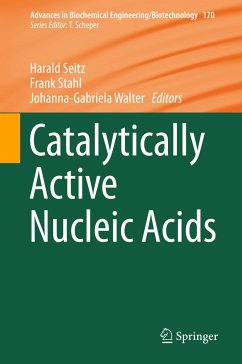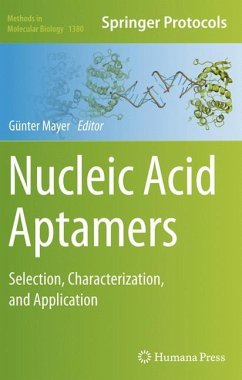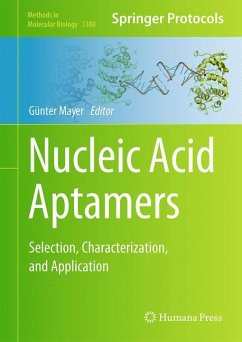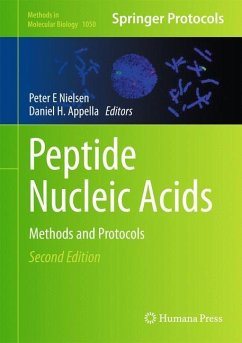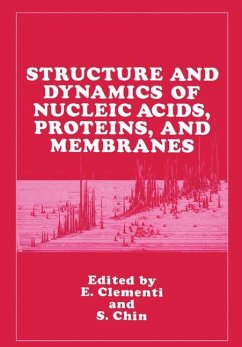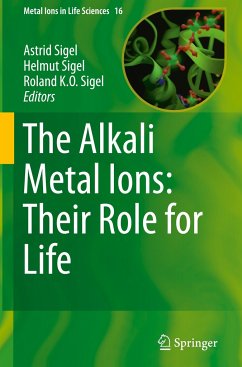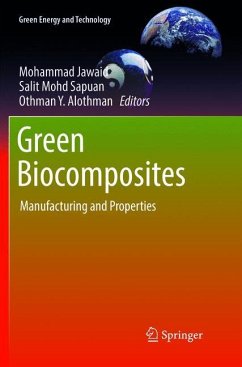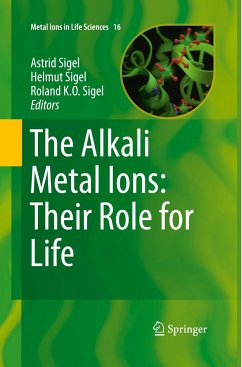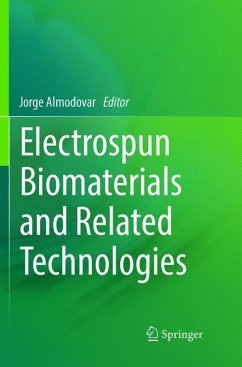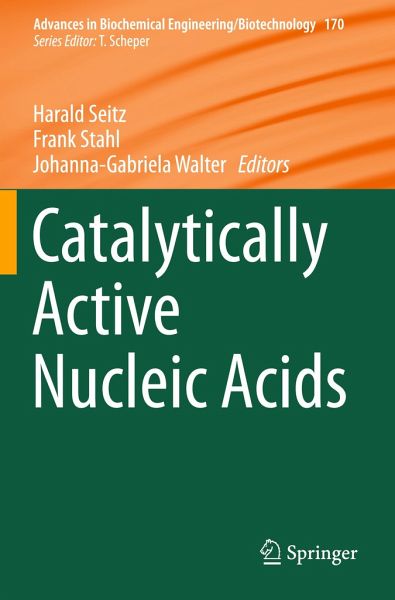
Catalytically Active Nucleic Acids
Versandkostenfrei!
Versandfertig in 6-10 Tagen
211,99 €
inkl. MwSt.

PAYBACK Punkte
106 °P sammeln!
This volume reviews numerous reaction mechanisms and applications of nucleic acids with catalytic activity. Written by an interdisciplinary team of authors, it provides an essential overview of these acids' fundamental aspects, while also addressing associated methodologies such as nucleic acid enzyme engineering, peroxidase-mimicking DNAzymes and Aptazymes.After the discovery of natural ribozymes - RNA molecules that mediate the cleavage and formation of phosphodiester bonds and the formation of peptide bonds - numerous artificial ribozymes with altered catalytic activities were produced by i...
This volume reviews numerous reaction mechanisms and applications of nucleic acids with catalytic activity. Written by an interdisciplinary team of authors, it provides an essential overview of these acids' fundamental aspects, while also addressing associated methodologies such as nucleic acid enzyme engineering, peroxidase-mimicking DNAzymes and Aptazymes.
After the discovery of natural ribozymes - RNA molecules that mediate the cleavage and formation of phosphodiester bonds and the formation of peptide bonds - numerous artificial ribozymes with altered catalytic activities were produced by in vitro and in vivo selection. Unlike ribozymes, DNAzymes do not occur in nature. Although the catalytic activity of nucleic acid enzymes is usually much slower than that of proteins, nucleic acid enzymes with comparable catalytic activity have been obtained using stringent selection processes. The key advantages of these enzymes: they are e.g. smaller, easier to produce and purify than proteins, and can withstand denaturation, e.g. by heat.
Over the last few years, the number of publications on the applications of enzymatic nucleic acids has grown steadily. Summarizing the fundamentals and applications of these acids, this book will not only be an excellent resource for experts in the field but will also guide young researchers just starting out in this significant area.
After the discovery of natural ribozymes - RNA molecules that mediate the cleavage and formation of phosphodiester bonds and the formation of peptide bonds - numerous artificial ribozymes with altered catalytic activities were produced by in vitro and in vivo selection. Unlike ribozymes, DNAzymes do not occur in nature. Although the catalytic activity of nucleic acid enzymes is usually much slower than that of proteins, nucleic acid enzymes with comparable catalytic activity have been obtained using stringent selection processes. The key advantages of these enzymes: they are e.g. smaller, easier to produce and purify than proteins, and can withstand denaturation, e.g. by heat.
Over the last few years, the number of publications on the applications of enzymatic nucleic acids has grown steadily. Summarizing the fundamentals and applications of these acids, this book will not only be an excellent resource for experts in the field but will also guide young researchers just starting out in this significant area.





